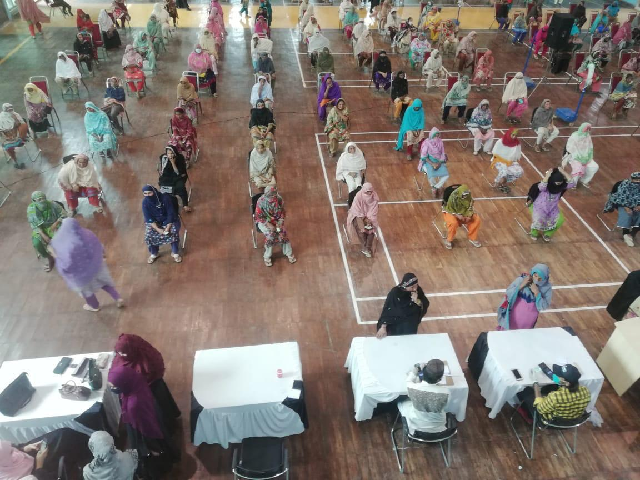
The government has decided to give one-time cash assistance of Rs12,000 per family to additional 4 million households and approved a supplementary budget of Rs26.5 billion for this purpose.
Headed by Minister for Finance Shaukat Tarin, the Economic Coordination Committee (ECC) of the Cabinet on Wednesday allowed expanding the Benazir Income Support Programme (BISP) to 8 million families under the second phase of the Ehsaas emergency programme.
The total cost of additional one-time assistance for the 4 million families is Rs48 billion. However, the BISP could not spend Rs22 billion against its current year’s allocation, which will now be diverted to the second phase of the Ehsaas emergency programme, said the finance ministry.
The ministry said the 2nd phase envisages increasing the number of regular Ehsaas Kafalat beneficiaries to 8 million by June 2021 through the ongoing National Socioeconomic Registry Survey (NSER).
All these beneficiaries will be provided a 6 monthly tranche (January- June, 2021) of Rs12,000 per beneficiary under Ehsaas Kafalat. The 4 million additional beneficiaries will be identified through the ongoing NSER survey by using a higher eligibility threshold while remaining below the poverty line.
Read: 'Ehsaas Cash Emergency' ranked among world’s top 4 social protection initiatives
The ministry said these additional 4 million beneficiaries will also be provided one-time emergency cash assistance of Rs12,000 per beneficiary to compensate for unemployment caused by Covid-19.
The disbursement process will be initiated within this month. The financial impact of providing assistance to these 4 million additional beneficiaries will be Rs48 billion.
The assistance will be provided through biometrically enabled ATM and retail Point of Sale agents as well as through dedicated bank branches for beneficiaries with thumb amputee failures.
The BISP disbursed Rs12 billion to beneficiaries under the phase 1 of the emergency cash assistance programme from its budget during the current fiscal year, which the finance ministry will reimburse. The BISP will also spend Rs10 billion less against this year’s budget allocation.
The Rs22 billion savings due to less spending would enable the BISP to make payments to 1.8 million additional beneficiaries, according to the poverty alleviation and social safety ministry’s summary.
The ECC approved the additional budget of Rs26.4 billion to cater the needs for the remaining 2.2 million beneficiaries in the next fiscal year.
The federal government had launched the Ehsaas Emergency Cash (EEC) programme in April last year to mitigate the effects of the COVID-19 on the vulnerable segments.
The BISP had identified 17 million eligible families under five different categories, including regular beneficiaries of the BISP programme, according to the Ministry of Poverty Alleviation and Social Safety.
Under the first phase, the government had disbursed Rs179.3 billion among the 14.8 million beneficiaries from April 9 to September 2020. The poverty alleviation ministry said due to the third wave of Covid-19, economic hardships of people are increasing.
Hydel profits The ECC constituted a committee to suggest a mechanism for payments of net hydle profits to Punjab and Khyber Pakhtunkhwa (K-P) and did not immediately approve the request for Rs86.8 billion supplementary budget.
The Power Division had moved a summary for the payment of the balance amount of Net Hydel Profits to the Water and Power Development Authority (Wapda).
The committee will discuss the matter in detail and suggest a mechanism for payment of Net Hydel Projects in a timely manner without pressurizing the national exchequer, said the finance ministry.
The Power Division had sought Rs86.8 billion supplementary budget to pay Rs33.1 billion outstanding dues to the K-P government and Rs53.7 billion to the Punjab government.
The net hydel profit is charged from the consumers and Wapda had taken a loan of Rs105 billion in the past to clear liabilities. But the National Electric Power Regulatory Authority (Nepra) had not allowed to charge Rs11 billion interest on these loans from the consumers.
The ECC also approved the issuance of 12 different notifications for the implementation of the Pakistan Single Window (PSW) Act, 2021.
The Implementation of the PSW Act 2021 will significantly reduce the paperwork for importers and exporters and will help boost trade and economic activity by providing connectivity between different government organizations and with other regional and global windows.
A governing council will be set up that will be headed by the finance minister.
The PSW system will apply to the Animal Quarantine Department, Department of Plant Protection, Federal Seed Certification and Registration Department and the Federal Board of Revenue (FBR).
Read more: PM expands 'Ehsaas Koi Bhooka Na Soye' programme to three more cities
It will also be used by the Pakistan Standard and Quality Control Authority, the Securities and Exchange Commission of Pakistan (SECP) and the State Bank of Pakistan (SBP).
The PSW Act will come into force from 2021.
The notifications will enable establishment of the PSW system, constitution of the governing council of the PSW, establishment of the PSW Secretariat, designation of the lead agency, operating entity, charging of the fees and allocation of the PSW work to the Revenue Division.
The government will charge Rs500 fee for each Good Declaration (GD) of import valuing more than Rs50,000 to Rs10 million. For a GD of value of above Rs10 million, the fee will be Rs1,000 per GD.
The ECC deferred decision on a summary moved by the Strategic Plan Division that sought to reduce the debt servicing cost from 15% to 2% on a $189 million Chinese loan that it had taken to launch a national satellite project.
It approved numerous supplementary grants mainly Rs700 million for the Aviation Division for meeting the Employee Related Expenditure (ERE) of the Airport Security Force and to Rs288.9 for repairs and purchases of 6 Aviation Squadron The ECC also gave the nod to Rs3.9 billion grants for the Defence Division for meeting the shortfall of funds for meeting various operational expenses at the Pakistan Navy Headquarters and Rs 400 million for the Ministry of Interior for raising a Special Security Wing at the Kartarpur Corridor.


1731550446-0/Polymarket-(1)1731550446-0-165x106.webp)

1729512368-0/liam-(8)1729512368-0-165x106.webp)
-(1)1718038311-0/SYDNEY-(1)-(1)1718038311-0-165x106.webp)
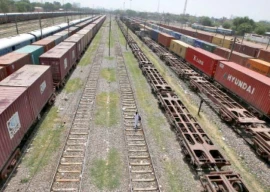
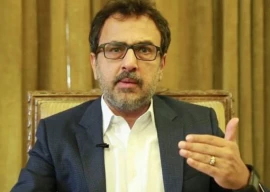
1730379446-0/WhatsApp-Image-2024-10-31-at-17-56-13-(1)1730379446-0-270x192.webp)



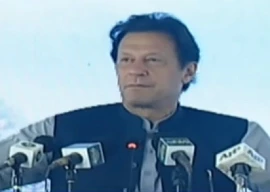

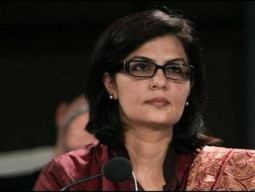






COMMENTS (1)
Comments are moderated and generally will be posted if they are on-topic and not abusive.
For more information, please see our Comments FAQ